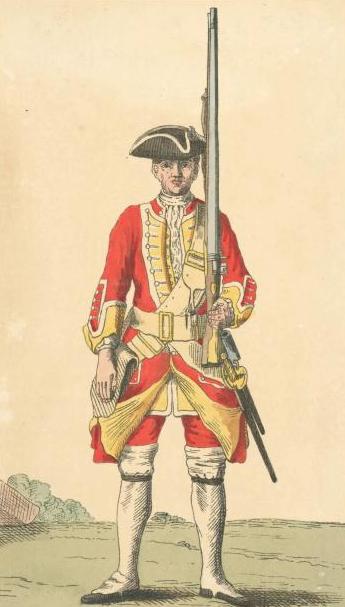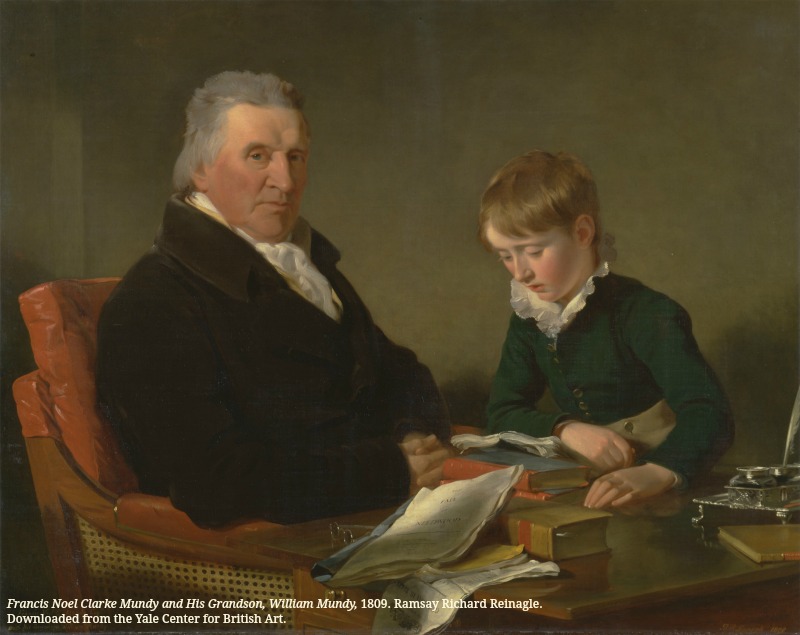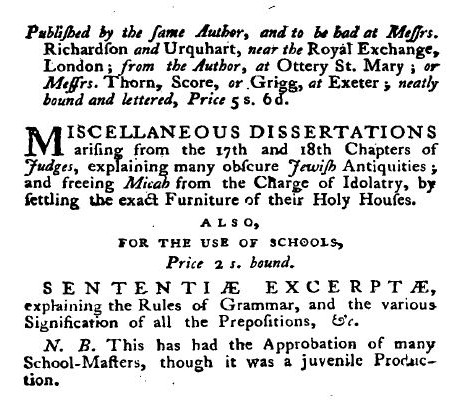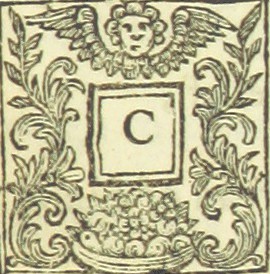Sunday, March, 1797
 My dear Poole, — My father (Vicar of, and Schoolmaster at, Ottery St. Mary, Devon) was a profound mathematician, and well versed in the Latin, Greek, and Oriental Languages. He published, or rather attempted to publish, several works: 1st, Miscellaneous Dissertations arising from the 17th and 18th Chapters of the Book of Judges ; 2d, Sententiae excerptae, for the use of his own school; and 3d, his best work, a Critical Latin Grammar; in the preface to which he proposes a bold innovation in the names of the cases. My father’s new nomenclature was not likely to become popular, although
My dear Poole, — My father (Vicar of, and Schoolmaster at, Ottery St. Mary, Devon) was a profound mathematician, and well versed in the Latin, Greek, and Oriental Languages. He published, or rather attempted to publish, several works: 1st, Miscellaneous Dissertations arising from the 17th and 18th Chapters of the Book of Judges ; 2d, Sententiae excerptae, for the use of his own school; and 3d, his best work, a Critical Latin Grammar; in the preface to which he proposes a bold innovation in the names of the cases. My father’s new nomenclature was not likely to become popular, although
it must be allowed to be both sonorous and expressive. Exempli gratia he calls the ablative the quippe-quare-quale-quia-quidditive case!
My father made the world his confidant with respect to his learning and ingenuity, and the world seems to have kept the secret very faithfully. His various works, uncut, unthumbed, have been preserved free from all pollution. This piece of good luck promises to be hereditary ; for all my compositions have the same amiable home-studying propensity. The truth is, my father was not a first-rate genius ; he was, however, a first-rate Christian. I need not detain you with his character. In learning, good-heartedness, absentness of mind, and excessive ignorance of the world, he was a perfect Parson Adams.
My mother was an admirable economist, and managed exclusively. My eldest brother’s name was John. He went over to the East Indies in the Company’s service; he was a successful officer and a brave one, I have heard. He died of a consumption there about eight years ago.
My second brother was called William. He went to Pembroke College, Oxford, and afterwards was assistant to Mr. Newcome’s School, at Hackney. He died of a putrid fever the year before my father’s death, and just as he was on the eve of marriage with Miss Jane Hart, the eldest daughter of a very wealthy citizen of Exeter.
My third brother, James, has been in the army since the age of sixteen, has married a woman of fortune, and now lives at Ottery St. Mary, a respectable man.

My brother Edward, the wit of the family,went to Pembroke College, and afterwards to Salisbury, as assistant to Dr. Skinner. He married a woman twenty years older than his mother. She is dead, and he now lives at Ottery St. Mary.
My fifth brother, George, was educated at Pembroke College, Oxford, and from there went to Mr. Newcome’s, Hackney, on the death of William. He stayed there fourteen years, when the living of Ottery St. Mary was given him. There he has now a fine school, and has lately married Miss Jane Hart, who with beauty and wealth had remained a faithful widow to the memory of William for sixteen years.
My brother George is a man of reflective mind and elegant genius. He possesses learning in a greater degree than any of the family, excepting myself. His manners are grave and hued over with a tender sadness. In his moral character he approaches every way nearer to perfection than any man I ever yet knew; in deed, he is worth the whole family in a lump.
My sixth brother, Luke (indeed, the seventh, for one brother, the second, died in his infancy, and I had forgot to mention him), was bred as a medical man. He married Miss Sara Hart, and died at the age of twenty-two, leaving one child, a lovely boy, still alive. My brother Luke was a man of uncommon genius, a severe student, and a good man.
The eighth child was a sister, Anne. She died a little after my brother Luke, aged twenty-one.
The ninth child was called Francis. He went out as a midshipman, under Admiral Graves. His ship lay on the  Bengal coast, and he accidentally met his brother John, who took him to land, and procured him a commission in the Army. He died from the effects of a delirious fever brought on by his excessive exertions at the siege of Seringapatam, at which his conduct had been so gallant, that Lord Cornwallis paid him a high compliment in the presence of the army, and presented him with a valuable gold watch, which my mother now has.
Bengal coast, and he accidentally met his brother John, who took him to land, and procured him a commission in the Army. He died from the effects of a delirious fever brought on by his excessive exertions at the siege of Seringapatam, at which his conduct had been so gallant, that Lord Cornwallis paid him a high compliment in the presence of the army, and presented him with a valuable gold watch, which my mother now has.
All my brothers are remarkably handsome; but they were as inferior to Francis as I am to them. He went by the name of “the handsome Coleridge.”
The snatching at fire, and the circumstance of my first words expressing hatred to professional men-are they at all ominous?
The tenth and last child was S.T. Coleridge, the subject of these epistles, born (As I told you in my last) October 20, 1772.
From October 20, 1772, to October 20, 1773. Christened Samuel Taylor Coleridge — my godfather’s name being Samuel Taylor, Esq. I had another godfather (his name was Evans), and two godmothers, both called “Monday.”
From October 20, 1773 to October 20, 1774. In this year I was carelessly left by my nurse, ran to the fire, and pulled out a live coal-burnt myself dreadfully. While my hand was being dressed by a Mr. Young, I spoke for the fist time (so my mother informs me) and said, “Nasty Doctor Young!” The snatching at fire, and the circumstance of my first words expressing hatred to professional men-are they at all ominous?
This year I went to school. My schoolmistress,the very image of Shenstone’s, was named Old Dame Key. She was nearly related to Sir Joshua Reynolds.
From October 20, 1774, to October 20, 1775. I was inoculated; which I mention because I distinctly remember it, and that my eyes were bound; at which I manifested so much obstinate indignation, that at last they removed the bandage, and unaffrighted I looked at the lancet, and suffered the scratch. At the close of the year I could read a chapter in the Bible.
Here I shall end, because the remaining years of my life all assisted to form my particular mind; – the three first years had nothing in them that seems to relate to it.




